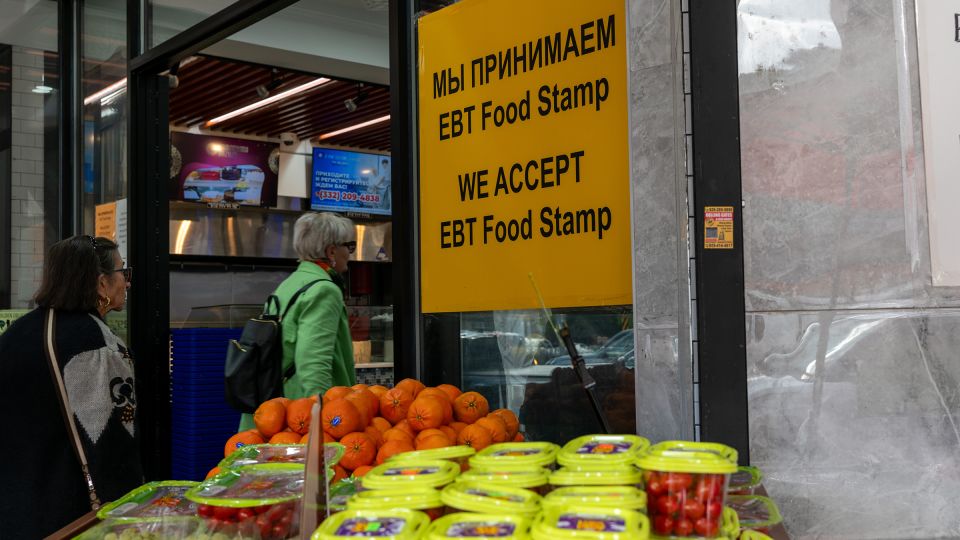The Trump administration is terminating the federal government’s annual report on food insecurity in America, saying it had become “redundant, costly and politicized” and noting that “extraneous studies do nothing more than fear monger.”
“For 30 years, this study — initially created by the Clinton administration as a means to support the increase of SNAP eligibility and benefit allotment —failed to present anything more than subjective, liberal fodder,” the US Department of Agriculture said in a statement Saturday, referring to the Supplemental Nutrition Assistance Program, the formal name for food stamps. “Trends in the prevalence of food insecurity have remained virtually unchanged, regardless of an over 87% increase in SNAP spending between 2019–2023.”
The Wall Street Journal first reported the end of the report. The USDA said it still plans to issue one final report – on hunger in 2024 – in October.
The move comes after President Donald Trump and the Republican-controlled Congress passed a sweeping domestic agenda package this year that will enact massive cuts to the food stamp program.
About 2.4 million fewer Americans, including families with children, are forecast to receive food stamp benefits in an average month after lawmakers expanded work requirements to some parents, older enrollees and others, according to a Congressional Budget Office analysis released in August.
And other recipients are expected to see their monthly assistance shrink at a time when grocery prices remain high and food banks are trying to cope with increased demand.
Nearly 42 million people received food stamps in May, according to the USDA. The average monthly benefit was just over $188 per person.
In 2023, about 13.5% of households were food-insecure at least at some point in the year, according to the most recent USDA report, which is used by policymakers responsible for food assistance programs. That share was higher than in 2022, when it was 12.8%.
Prior reports indicated that enhanced federal support can reduce hunger. Food insecurity among families with children fell in 2021, reversing a spike during the first year of the Covid-19 pandemic. Experts pointed to the enhanced child tax credit that was in effect that year as a major reason why it declined. Hunger among families climbed the following year, after the credit lapsed.
However, the USDA now says that the questions used to collect the data on hunger “do not present an accurate picture of actual food security.”
The administration has also cast doubt on the accuracy of the government’s monthly jobs report and fired the commissioner in charge of it last month. Former Department of Labor officials, who had served in both Democratic and Republican administrations, contested Trump’s claim.
Advocates for low-income Americans voiced concerns about the administration’s latest action.
“By cancelling the survey, USDA is sending a signal that tracking and battling hunger is no longer a priority,” Eric Mitchell, president of the Alliance to End Hunger, said in a statement. “With continuing worries about food inflation, as well as significant cuts to America’s largest food assistance program – SNAP – this move is a blow to policymakers and advocates who rely on the data to improve the lives of our food insecure neighbors.”
For more CNN news and newsletters create an account at CNN.com

